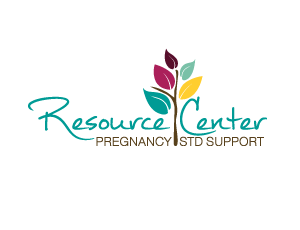Am I pregnant?
A pregnancy test can give you that answer with a simple, self-read test of a woman’s urine sample for a hormone called hCG. Human Chorionic Gonadotropin (hCG) is present in a woman’s urine when an egg has been joined by a sperm cell and implanted in her uterus (womb). At this time, all the DNA and characteristics of this new person are present. Their life began when the egg was joined by the sperm, and the pregnancy began when it implanted.
How accurate? These tests are 99% accurate after a missed period. There is a possibility of a false-negative test. This can be for several different reasons:
- The test was taken too early for it to pick up on the amount of hCG present.
- The test was expired.
- The test was taken the wrong way.
- The urine used on the test was too diluted because a lot of fluids were drunk before the test.
- Certain medications, including diuretics or antihistamines, can affect the test as well.
It can be possible to have a false-positive as well if the test in the following circumstances:
- The test was taken within days of a miscarriage.
- The woman had just had a baby. (It takes approximately six weeks for hCG to return to normal.)
- If the woman is taking certain medications.
The most effective way to conduct a test is to follow the instructions on the test and take it when you have missed your period by four days. This is because hCG doubles every two to three days and should be detected at that point. If you think you have a false negative, it would be a good idea to take another pregnancy test in a week or reach out to a medical professional.
Tracking your menstrual cycles is important and helpful in determining if you may be pregnant. Keeping count of how many days are between the start of one cycle to the start day of the next, lets you know the rhythm of your body. It’s also perfect for knowing when to expect the next one, knowing that it’s late, and how late! And when to take a test! There are many resources to help you track your cycle, including apps.
Time to find out if you’re pregnant? Schedule your appointment today at the Resource Center online or at (970) 353-2673.
The Center can also help you think through the circumstances of your home test and your cycle dates with the date of your last sexual encounter. Let’s put the pieces of the puzzle together. The Center offers free options advocating, pregnancy tests, pre-abortion screenings, cardiac-confirmation ultrasounds, and STD testing/treatment.
Resources/References:
American Pregnancy Association. (2020, August 10). Early Pregnancy Test. Retrieved August 20, 2020, from https://americanpregnancy.org/getting-pregnant/understanding-pregnancy-tests-70933
Quick & Clear II Pregnancy Test. (2018). Retrieved August 18, 2020, from https://www.hh76.org/details.aspx?prod_id=5060
Mayo Clinic Staff. (2019, January 12). Home pregnancy tests: Can you trust the results? Retrieved August 18, 2020, from https://www.mayoclinic.org/healthy-lifestyle/getting-pregnant/in-depth/home-pregnancy-tests/art-20047940




